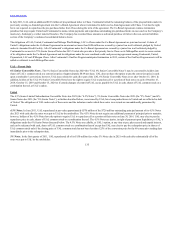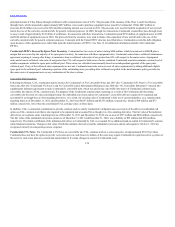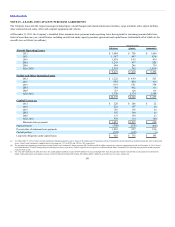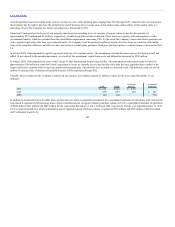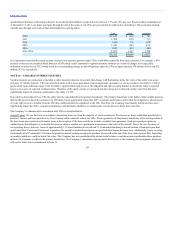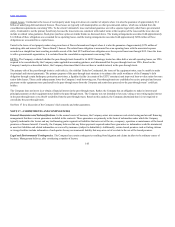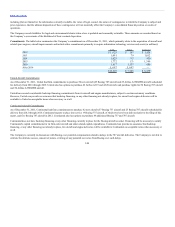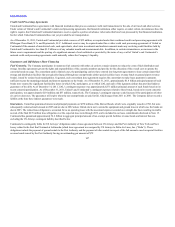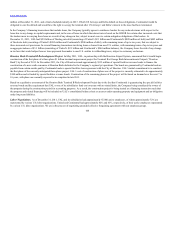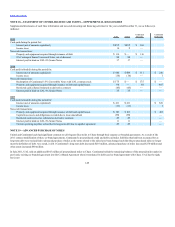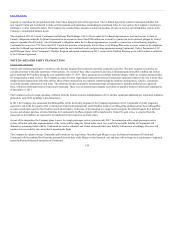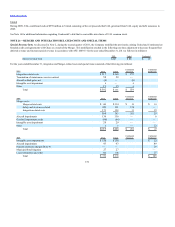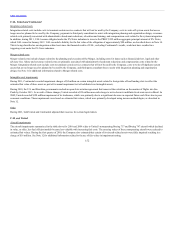United Airlines 2011 Annual Report Download - page 144
Download and view the complete annual report
Please find page 144 of the 2011 United Airlines annual report below. You can navigate through the pages in the report by either clicking on the pages listed below, or by using the keyword search tool below to find specific information within the annual report.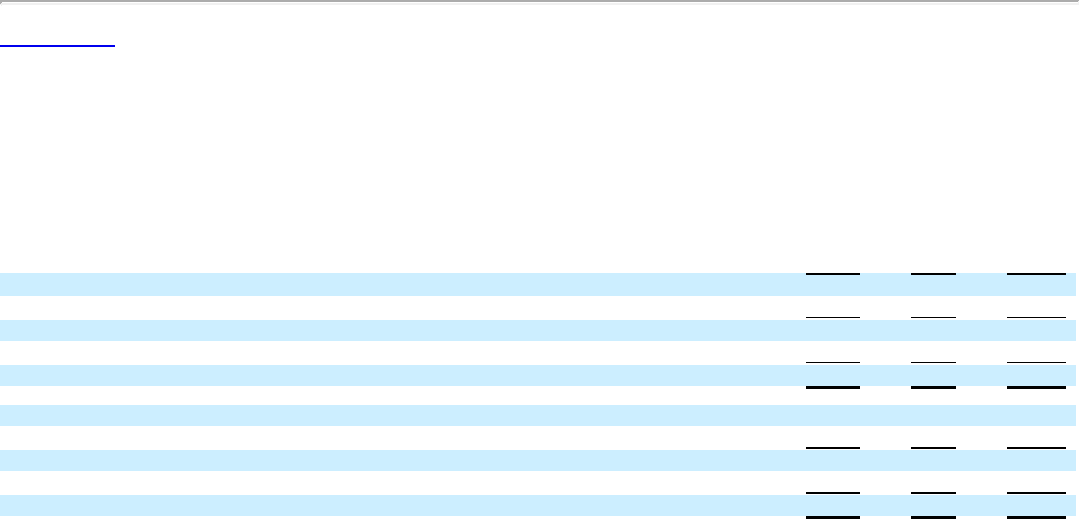
Table of Contents
In connection with UAL Corporation’s and United’s fresh-start reporting requirements upon their exit from Chapter 11 bankruptcy protection in 2006 and
UAL’s and Continental’s acquisition accounting adjustments related to the Merger, lease valuation adjustments for operating leases were initially recorded in
the consolidated balance sheet, representing the net present value of the differences between contractual lease rates and the fair market lease rates for similar
leased assets at the time. An asset (liability) results when the contractual lease rates are more (less) favorable than market lease terms at the valuation date. The
lease valuation adjustment is amortized on a straight-line basis as an increase (decrease) to rent expense over the individual applicable remaining lease terms,
resulting in recognition of rent expense as if the Company had entered into the leases at market rates. The related remaining lease terms are one to 13 years for
United and one to 14 years for Continental. The lease valuation adjustments are classified within other noncurrent assets and other noncurrent liabilities,
respectively, and are as follows as of December 31, (in millions):
Gross deferred asset $ 263 $ 263 $ —
Less: accumulated amortization (155) (155) —
Net deferred asset balance at December 31, 2010 108 108 —
Less: accumulated amortization (14) (14) —
Net deferred asset balance at December 31, 2011 $ 94 $ 94 $ —
Gross deferred liability $(1,433) $ — $(1,433)
Less: accumulated amortization 59 — 59
Net deferred liability at December 31, 2010 (1,374) — (1,374)
Less: accumulated amortization 241 — 241
Net deferred liability at December 31, 2011 $(1,133) $ — $(1,133)
The Company has capacity purchase agreements (“CPAs”) with certain regional carriers. We purchase all of the capacity from the flights covered by the CPA
at a negotiated price. In exchange for the regional carriers’ operation of the flights and performance of other obligations under the CPAs, we have agreed to pay
the regional carrier a pre-determined rate, subject to annual inflation adjustments (capped at 3%), for each block hour flown (the hours from gate departure to
gate arrival) and to reimburse the regional carrier for various pass-through expenses (with no margin or mark-up) related to the flights, including aviation
insurance, property taxes, international navigation fees, depreciation (primarily aircraft-related), landing fees and certain maintenance expenses. Under the
CPAs, we are responsible for the cost of providing fuel for all flights and for paying aircraft rent for all of the aircraft covered by the CPAs. Generally, the
CPAs contain incentive bonus and rebate provisions based upon each regional carrier’s operational performance. United’s and Continental’s CPAs are for 291
and 265 regional aircraft, respectively, and the United and Continental CPAs have terms expiring through 2024 and 2021, respectively. Aircraft operated
under CPAs include aircraft leased directly from the regional carriers and those leased from third party lessors and operated by the regional carriers.
Our future commitments under our CPAs are dependent on numerous variables, and are therefore difficult to predict. The most important of these variables is
the number of scheduled block hours. Although we are not required to purchase a minimum number of block hours under certain of our CPAs, we have set
forth below estimates of our future payments under the CPAs based on our assumptions. Continental’s estimates of its future payments under all of the CPAs
do not include the portion of the underlying obligation for any aircraft leased to ExpressJet or deemed to be leased from other regional carriers and facility rent
that are disclosed as part of aircraft and nonaircraft operating leases. For purposes of calculating these estimates, we have assumed (1) the number of block
hours flown is based on our anticipated level of flight activity or at any contractual minimum utilization levels if applicable, (2) that we will reduce the fleet as
rapidly as contractually allowed under each CPA, (3) that aircraft utilization, stage length and load factors will remain constant, (4) that each carrier’s
143




